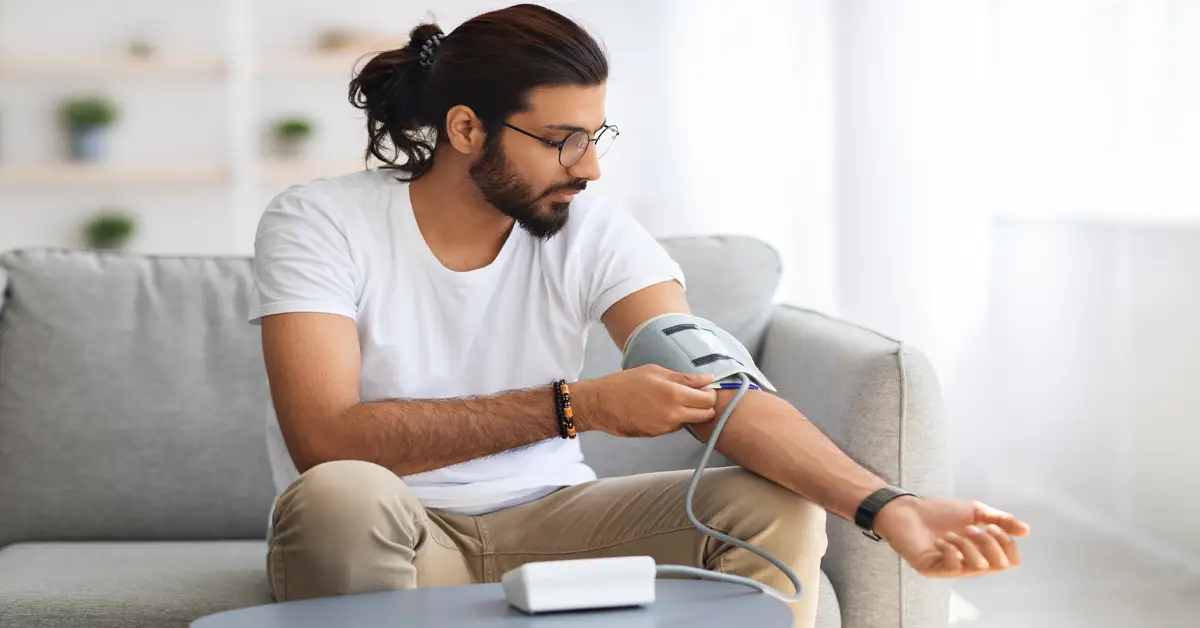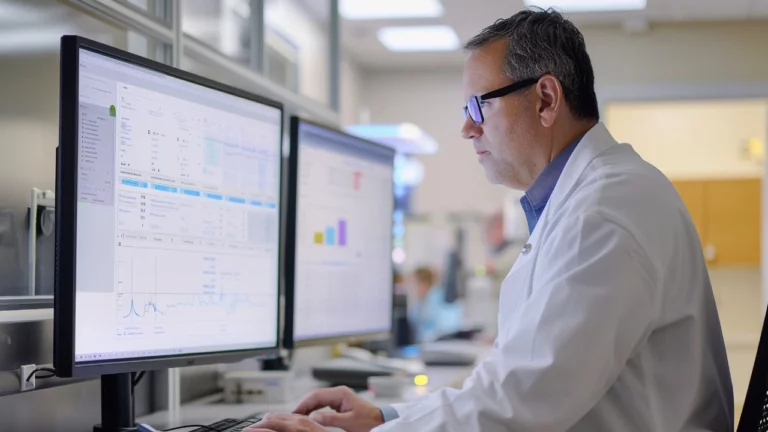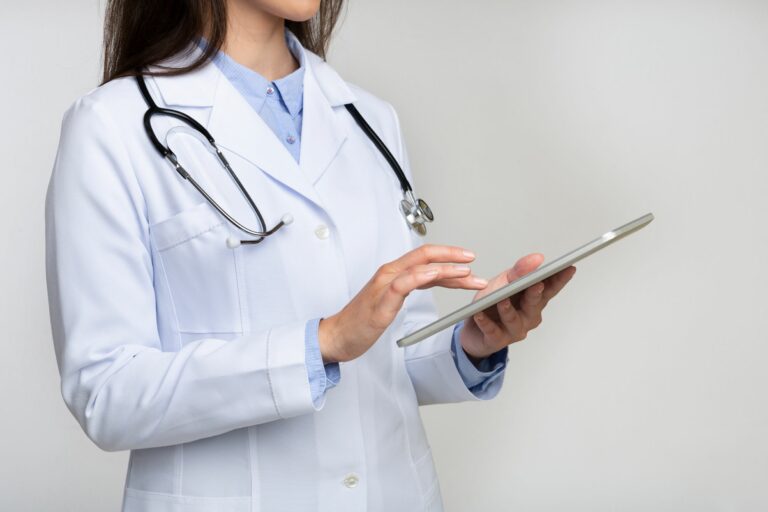NOTE: The content in this article is not intended to be a substitute for professional medical advice, diagnosis, or treatment. Always seek the advice of your physician or other qualified health provider with any questions you may have regarding a medical condition.
Approximately 45% of adults, or 37 million people, in the United States, have uncontrolled hypertension, or high blood pressure, with a blood pressure reading of 140 mmHg or higher and diastolic blood pressure of 90 or higher. As healthcare providers (HCPs), it is important to understand the role that self-care plays in the management of this common and serious condition. By encouraging and supporting hypertension self-care management in patients, HCPs can greatly improve health outcomes and reduce the burden of heart disease. It is essential for HCPs to be knowledgeable about the importance of self-care in hypertension management to provide the necessary resources and support to help their patients make healthy choices.
Hypertension Self-Care Management
Hypertension self-care management involves proactively taking control of high blood pressure through self-care practices to reduce blood pressure and lower the risk of long-term health complications, such as stroke, heart attack, and other cardiovascular diseases. By engaging in self-care practices, individuals with hypertension can improve their overall well-being and take charge of their health.
HCPs can be instrumental in supporting and encouraging a patient’s hypertension self-care management by providing information and resources, setting goals, and offering guidance and support. They can also offer assistance in data collection and other risk factors for hypertension to help reduce the prevalence of communicable diseases and improve the health of hypertensive patients.
Role of Self-Care in the Management of Hypertension
Self-care is a critical aspect of managing hypertension and involves taking steps to maintain one’s own health and well-being. Self-care may include making lifestyle changes, such as adopting a healthy diet and engaging in regular physical activity, as well as ensuring proper medication adherence and monitoring blood pressure. By engaging in self-care practices, individuals with hypertension can effectively manage their condition and prevent other health problems from developing.
Self-care is an essential component of hypertension management because it involves taking proactive steps to maintain and reduce high blood pressure, which can reduce the risk of complications such as heart attacks, strokes, and kidney disease. By taking charge of their health through self-care, individuals with hypertension can improve their overall well-being.
As HCPs, it is important to educate patients with hypertension about self-care strategies to manage their condition, including the importance of:
- Eating a healthy diet that is low in salt, saturated fat, and added sugars.
- Engaging in regular physical activity, such as walking, running, or cycling, to increase cardiovascular fitness and lower blood pressure.
- Taking prescribed medications as directed by a healthcare provider.
- Monitoring blood pressure regularly, either at home or at a healthcare facility, to ensure that hypertension is being effectively managed.
- Reducing stress through relaxation techniques, such as deep breathing or meditation.
By supporting and encouraging self-care practices in patients with hypertension, HCPs can play a vital role in improving health outcomes and reducing the burden of heart disease.
Factors Affecting Hypertension Self-care Management
There have been several reviews and meta-analyses that have examined factors affecting self-care in different populations.
In developing countries, factors such as low health literacy, limited access to healthcare resources, and inadequate social support can negatively impact self-care. In middle-income countries, a lack of knowledge about hypertension and poor medication adherence can often be barriers to self-care.
A review and meta-analysis of predictors of self-care practices among hypertensive patients identified several factors that can affect self-care, including age, education level, income, and perceived health status.
Overall, these studies suggest that a variety of factors — including health literacy, social support, access to resources, and individual characteristics — can positively impact self-care. HCPs should consider these factors when working with patients to control their blood pressure and provide the necessary support and resources to help them effectively self-care.
Integration of DrKumo’s Remote Patient Monitoring into Hypertension Self-care Management
DrKumo Remote Patient Monitoring (RPM) technology solution is a powerful tool for healthcare providers looking to improve the care and management of their patients with hypertension. By integrating RPM into self-care, patients can take an active role in their own healthcare and track their physiologic health indicators in real-time using medical devices sending secure data to an intelligent cloud system. This system empowers patients to better manage their health and enables HCPs to stay up-to-date on their patients’ health, and intervene if necessary, leading to improved health outcomes and a reduction in the risk of heart disease and other chronic conditions.
By integrating DrKumo highly secure (with end-to-end encryption of all patient data) RPM solution into self-care, HCPs can address the following factors that can impact self-care: (a) limited healthcare access in rural areas in the United States; and (b) low health and digital literacy. With RPM, HCPs can provide patients with the education, resources, and support they need to effectively manage their condition and improve their overall health and well-being. Additionally, RPM allows patients to easily and securely transmit their physiological data to their HCPs, enabling timely intervention and increasing adherence to treatment. By using RPM, HCPs can help patients overcome these barriers to self-care management and improve their health outcomes.
Conclusion
Self-care is an essential component of managing hypertension. By adopting healthy lifestyle behaviors, such as eating a healthy diet, exercising regularly, and managing stress, individuals with hypertension can take positive control of their health and reduce the risk of serious complications. HCPs have a vital role in supporting and encouraging self-care practices among hypertensive patients by providing education and resources and addressing any barriers to self-care. By understanding the various factors that can influence an individual’s ability to engage in self-care — such as age, education level, access to healthcare resources, and social support — healthcare providers can significantly help to improve health outcomes for their patients while reducing the burden of heart disease in the healthcare system. Overall, self-care for high blood pressure is an important aspect of managing this condition and improving overall health and well-being.
For healthcare professionals seeking to revolutionize health care through the integration of self-care and RPM, contact DrKumo today!
NOTE: The content in this article is not intended to be a substitute for professional medical advice, diagnosis, or treatment. Always seek the advice of your physician or other qualified health provider with any questions you may have regarding a medical condition.








